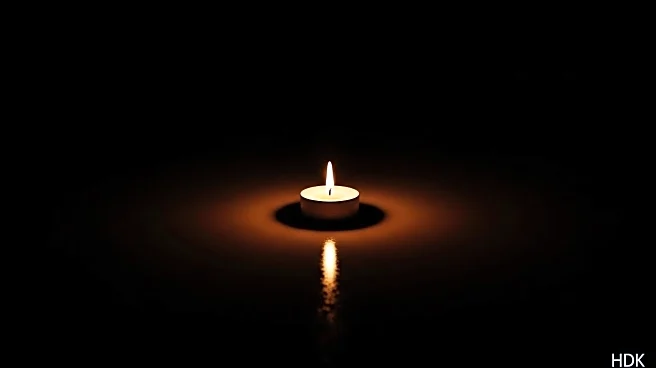What is the story about?
What's Happening?
The M² Institute for Experiential Jewish Education conducted a survey of 950 North American Jewish communal professionals, revealing a significant lack of hope among them. The survey, intended as a positive gesture for the Rosh Hashanah holiday, instead highlighted that only 24% of respondents often feel hopeful about the future. This contrasts sharply with a 2024 study by the Human Flourishing Labs, which found that 82% of the general U.S. population felt hopeful. The survey results were influenced by recent geopolitical tensions, including the Iran-Israel war and the ongoing conflict in Gaza, which have exacerbated feelings of despair. Shuki Taylor, founder and CEO of M², noted that the findings were a 'reckoning,' reflecting the dire situation post-October 7, with rising antisemitism and internal communal divisions.
Why It's Important?
The survey's findings underscore a critical issue within the Jewish professional community, highlighting the impact of global conflicts and internal divisions on morale. The lack of hope among these professionals could affect their ability to effectively lead and support their communities. This sentiment may also reflect broader societal challenges, as Jewish professionals play a vital role in cultural and community leadership. The results suggest a need for strategic interventions to bolster hope and resilience, potentially influencing policy and organizational strategies within Jewish communal organizations. The survey also emphasizes the importance of recognizing and communicating the impact of their work, which could help mitigate feelings of hopelessness.
What's Next?
The M² Institute's report recommends fostering a sense of belonging and community through rituals and learning, and ensuring that staff are aware of the impact of their work. Organizations are encouraged to share success stories not only with boards and funders but also with staff, to reinforce their role as significant stakeholders. These steps aim to rebuild hope and strengthen the communal fabric amidst ongoing challenges. The Jewish community may see increased efforts to address internal divisions and leadership failures, as these were identified as major challenges by survey respondents.
Beyond the Headlines
The survey highlights deeper issues of internal division and leadership challenges within the Jewish community, which could have long-term implications for communal cohesion and effectiveness. The ongoing geopolitical tensions and rising antisemitism add layers of complexity to these challenges, potentially influencing future policy and community strategies. The findings may prompt a reevaluation of leadership approaches and community engagement strategies to better support Jewish professionals and their communities.
















